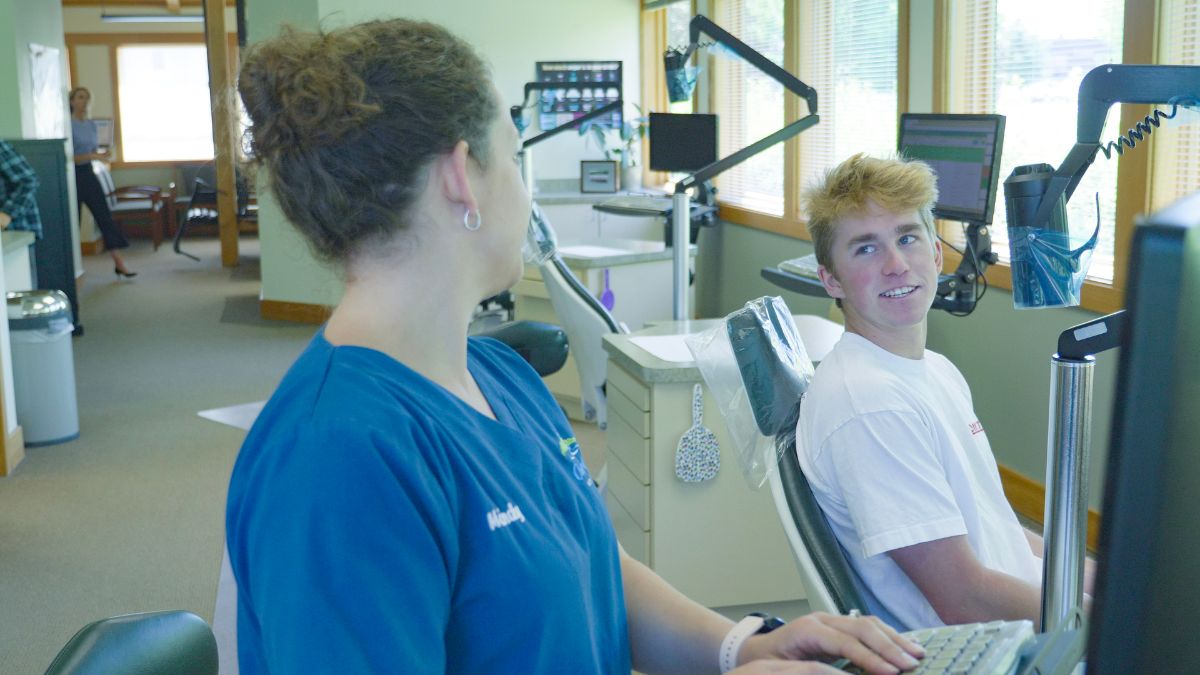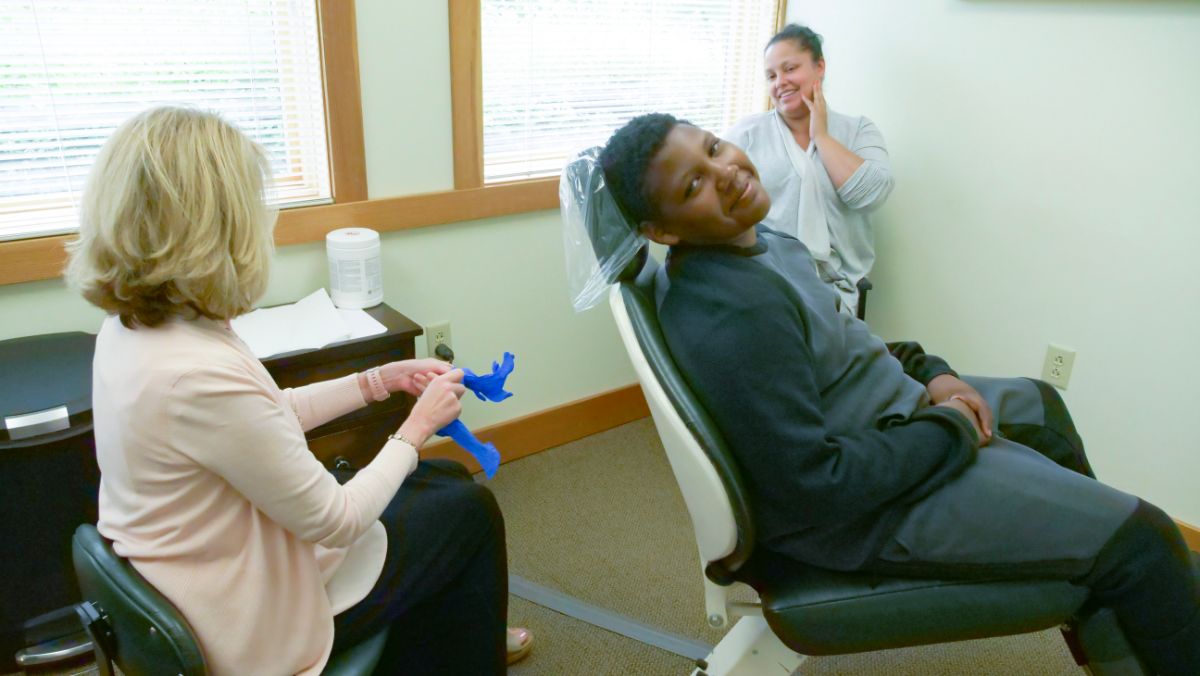Orthodontic treatment is most often associated with teens, but it can benefit patients of all ages, including children. This is why the American Association of Orthodontists recommends every child has an orthodontic evaluation around the age of 7. This may seem early since many young children still have developing mouths and several baby teeth. Because of this, many parents wonder why early orthodontic treatment matters. Identifying dental issues early in life gives orthodontists like Dr. Ryan and Dr. Eaton the chance to correct them before they develop into something more serious.
Taking a preventative approach to orthodontic care gives children the best chance at a lifetime of beautiful, healthy smiles! Champlain Orthodontics is proud to offer free consultations to all potential patients. Parents who schedule a visit for their young children can expect an assessment of their oral health and development up to this point. Our team will check for anything out of the ordinary that may require further attention, either now or in the future. Early detection of possible problems between the ages of 7-10 may lead to something called interceptive orthodontics. Keep reading to learn more!
What is interceptive orthodontics?
Interceptive orthodontics, also known as Phase I orthodontics, allows an orthodontist to identify and diagnose any issues with jaw growth or tooth development at the optimal age for the best results. Treatment in this phase creates space for the proper development and eruption of the permanent teeth. It can also enhance the growth of a child’s jaw, promoting a healthier relationship between the teeth and jaws. This gives children a straighter and more symmetrical smile. It can also improve their overall oral health!
Who is a good candidate for interceptive orthodontics?
There are several reasons why interceptive orthodontics may be recommended. After Dr. Ryan or Dr. Eaton inspects a child’s teeth and jaws, they may discuss this option with parents if it appears that:
- the child will be prone to a problem we want to prevent
- the child already has a developing problem that we now want to intercept
- the child’s jawbones may need some guidance as they grow
Many orthodontic issues are genetic, like crowded teeth, teeth with extra space between them, extra or missing teeth, and other irregularities. However, other issues may be acquired. These types of malocclusions may be caused by a traumatic injury, extended thumb sucking or pacifier use, dental disease, and premature tooth loss. Whether they are inherited or acquired, these problems can affect the alignment of a child’s teeth, their facial development, and the cosmetic appearance of their smile. Interceptive orthodontics with Champlain Orthodontics can address each of these concerns.

Examples of interceptive orthodontics
Some parents worry that an early orthodontic exam will lead to treatment right away, but this is rarely the case. In fact, we recommend immediate treatment for only a small percentage of the young patients we evaluate in our Williston and St. Albans offices.
Even if treatment is indicated, that will not necessarily mean putting a child into braces right away. Many of the most common Phase I treatments do not even use brackets, wires, and bands! Some examples of this include:
- removing one or more primary teeth to help guide the proper placement of the permanent teeth
- using expanders to widen the upper jaw and provide space for very crowded teeth
- placing teeth spacers to save a spot for permanent teeth if a primary tooth has been lost early due to injury or decay
At Champlain Orthodontics, we follow the normal patterns of a child’s dental growth and development, which allows us to treat issues at the most optimal time. Many problems can be treated fairly easily in a child whose mouth is still developing but might require more invasive treatment once their jawbones stop growing. This normally happens between the ages of 16-18 and may make treatment more complex.
In many cases, interceptive orthodontics can achieve positive, lasting results for these issues and may lessen the impact of others. That said, most patients will still require a second phase of treatment with braces or aligners to complete the alignment process.
Schedule regular visits for a smile that looks good and feels great
Early orthodontic evaluations give children the best foundation for healthy teeth and a fully functional smile! Even if Dr. Ryan and Dr. Eaton do not detect any dental issues that need immediate attention, there are many benefits to visiting an orthodontist throughout childhood. These regular check-ups allow us to:
- monitor the progress of emerging permanent teeth
- monitor the progress of facial and jaw development
- reduce the need for jaw surgery later in life
- guide emerging teeth into the ideal positions
- detect hidden dental problems
- reduce the risk of impacted teeth
- reduce the risk of needing tooth extractions in the future
There are so many reasons to love these visits! Being able to care for a child’s smile proactively instead of reactively puts us in a better position to give our young patients the care they need at the time it will benefit them most.

Enjoy a lifetime of healthy smiles starting with Champlain Orthodontics
Every child’s smile is just as unique as they are. That’s why Dr. Ryan and Dr. Eaton create customized treatment plans for every patient they see. What works for one child may not be the best for another, but personalized care and attention to detail guarantee successful treatment for every smile.
To learn more about how children can benefit from early evaluations and interceptive orthodontics, get in touch and schedule a FREE consultation with Dr. Ryan and Dr. Eaton.
 Free Consult
Free Consult
